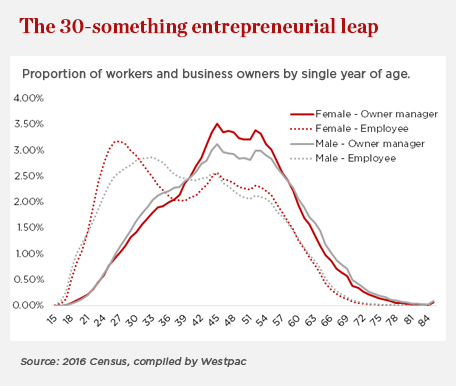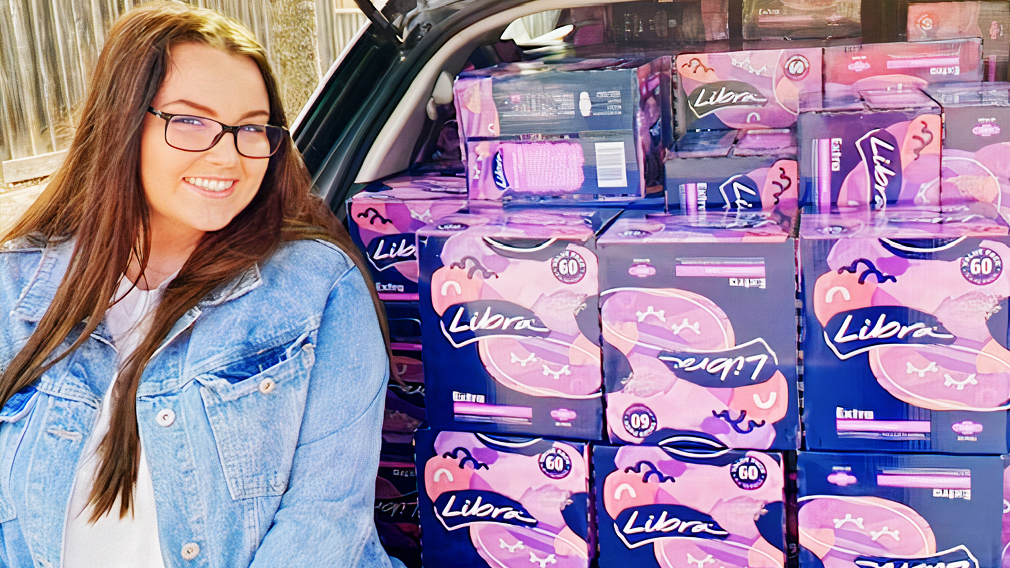Unravelling Australia’s entrepreneurial DNA

Social demographer, Bernard Salt, digs into the 2016 Census to unearth the makeup of Aussie entrepreneurs. (Getty)
What does it really take to start a business in Australia?
Some might say it’s access to capital or perhaps to have been born into an entrepreneurial family. But I think there’s such a thing as an entrepreneurial DNA that is capable of propelling a select few on the pathway to business success from an early age.
Come with me on a journey into the minutiae of what it takes to be an entrepreneur in Australia. Let’s start by unravelling the very essence of the enterprise DNA that is buried deep within the 2016 Census.
About 15 per cent of the Australian workforce are business owners – entrepreneurs – who can include for example sole-trader ‘consultants’ as well as tradies employing an apprentice, shopkeepers and this is addition to medium and large business owners.
About three-quarter of business owners are male who tend to be aged between 45 and 55. The point at which men shift from being an ‘employee’ to an ‘entrepreneur’ is at the age of 39. Women also tend to run their own businesses from the mid-40s to the mid-50s however they start making the shift from the age of 36.

The typical Aussie entrepreneur spends their 20s and early 30s working as employees, perhaps operating a side hustle or merely planning the eventual move into their own business. Women jump first at the age of 36 and men follow at the age of 39. The difference can be explained by the type of businesses that each gender favours and consideration of the risks involved.
While not all entrepreneurs follow the pathway of the Australian average as determined by the census, here is what we now know about might be defined as the entrepreneurial genome in Australia.
It very much includes an appetite for risk, a capacity to handle pressure, as well as a willingness to work hard work which we know because bosses work tend to more hours than employees.
For the most part entrepreneurs start off working for someone else and as they do they develop skills and contacts they plot and plan their ‘escape’ to their own businesses.
Men and women both see the late 30s as the time to make the move into their own businesses.
Being an entrepreneur doesn’t happen in isolation. It happens amid the turbulence and the trials of everyday life. Starting a business is often undertaken at a time in the lifecycle when it’s necessary to juggle the needs of a young family as well as the demands a current employer and at the same time maintaining sufficient cashflow to keep abreast of the mortgage repayments.
Clearly, being an entrepreneur is not for the faint-hearted.
Those who are forever waiting for precisely the right time to start a business perhaps don’t have all the ingredients necessary to sustain the entrepreneurial DNA. Creating a business happens amid the messy and the demanding stuff of everyday life.
And so it is that amid the chaos of life, the entrepreneurial DNA, the desire to create something, the need to be your own boss, the lure of direct financial reward, bubbles to the surface and propels an employee into the heady world of small business.
This narrative speaks to a fundamental truth about entrepreneurs. They are driven by the desire to create something for they are prepared to risk and to sacrifice much of what they have already assembled by their late 30s to “give it a go.”
But even with the right DNA and the right background – garnering skills and contacts throughout the 20s and the 30s – there’s something else that is required. It is the steadying hand of experience and perhaps even the mind-expanding impact of collaborative chat. Entrepreneurs are individualistic by nature but it is impossible to be across the detail of technology, human resources, financial planning, import-export regulations.
And that is why successful entrepreneurs benefit from the stimulus of ideas and thinking that comes from timely chats with mentors, as well as with business connections, academics and role models offered through programs like Westpac’s Businesses of Tomorrow.
Entrepreneurial DNA has little to do with luck and heritage; it has far more to do with ambition, self-confidence and the driving – even burning – desire to create something out of nothing.
And so it is this entrepreneurial energy, this chutzpah of Aussie enterprise is able to bubble forth somewhere, somehow, to deliver the businesses of tomorrow.
Bernard Salt is an advocate for Westpac’s Businesses of Tomorrow program. Businesses can apply for the 2018 program until 8 April 2018.
Research by Simon Kuestenmacher simon@tdgp.com.au.


